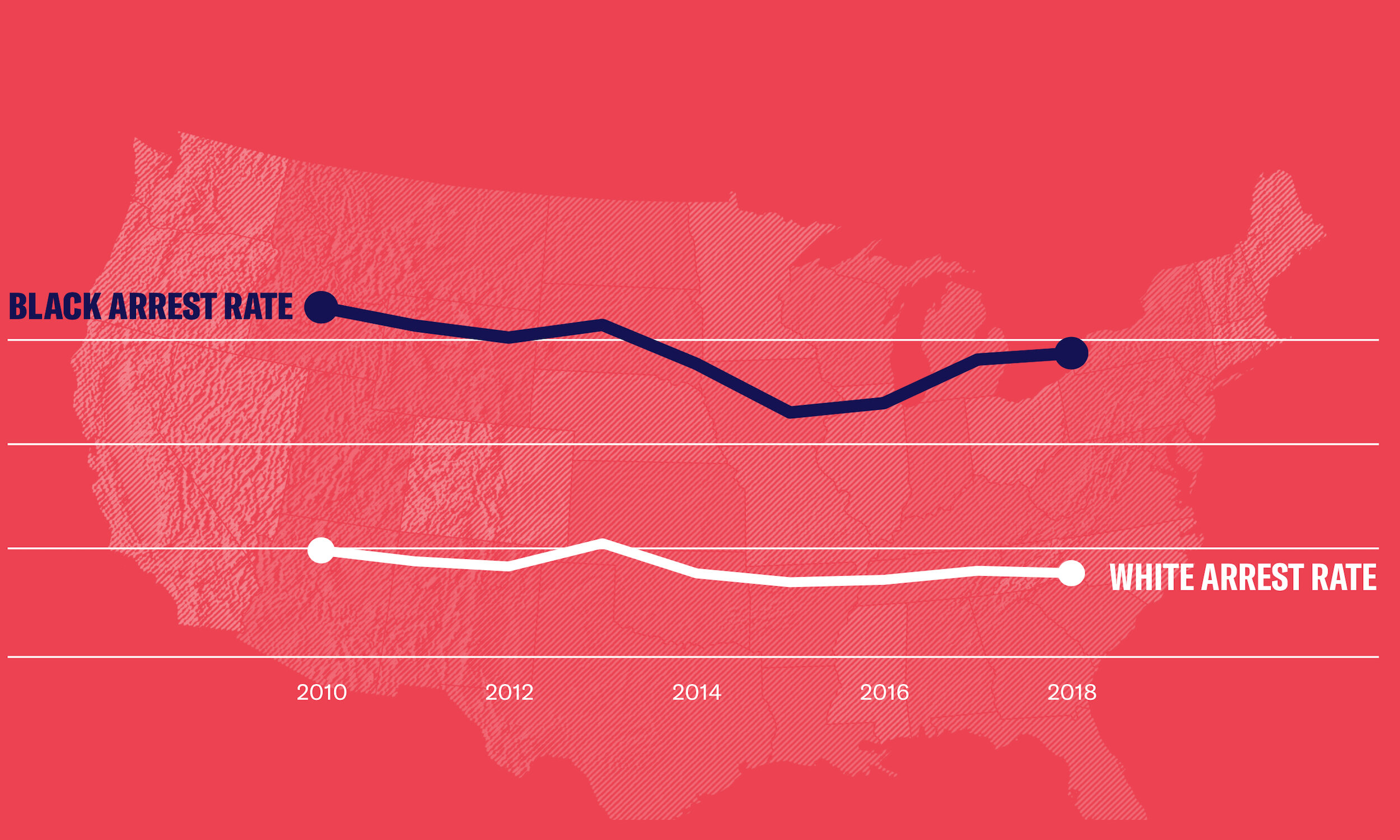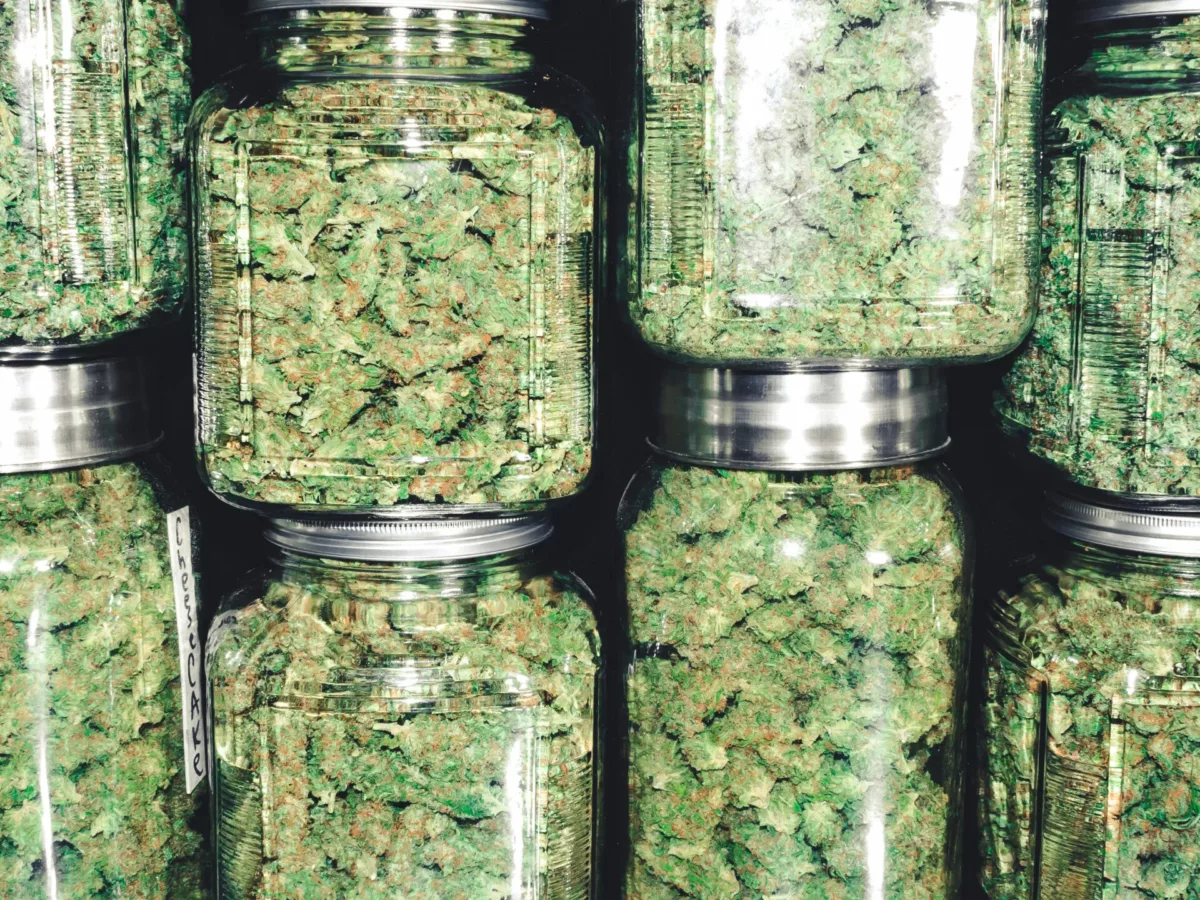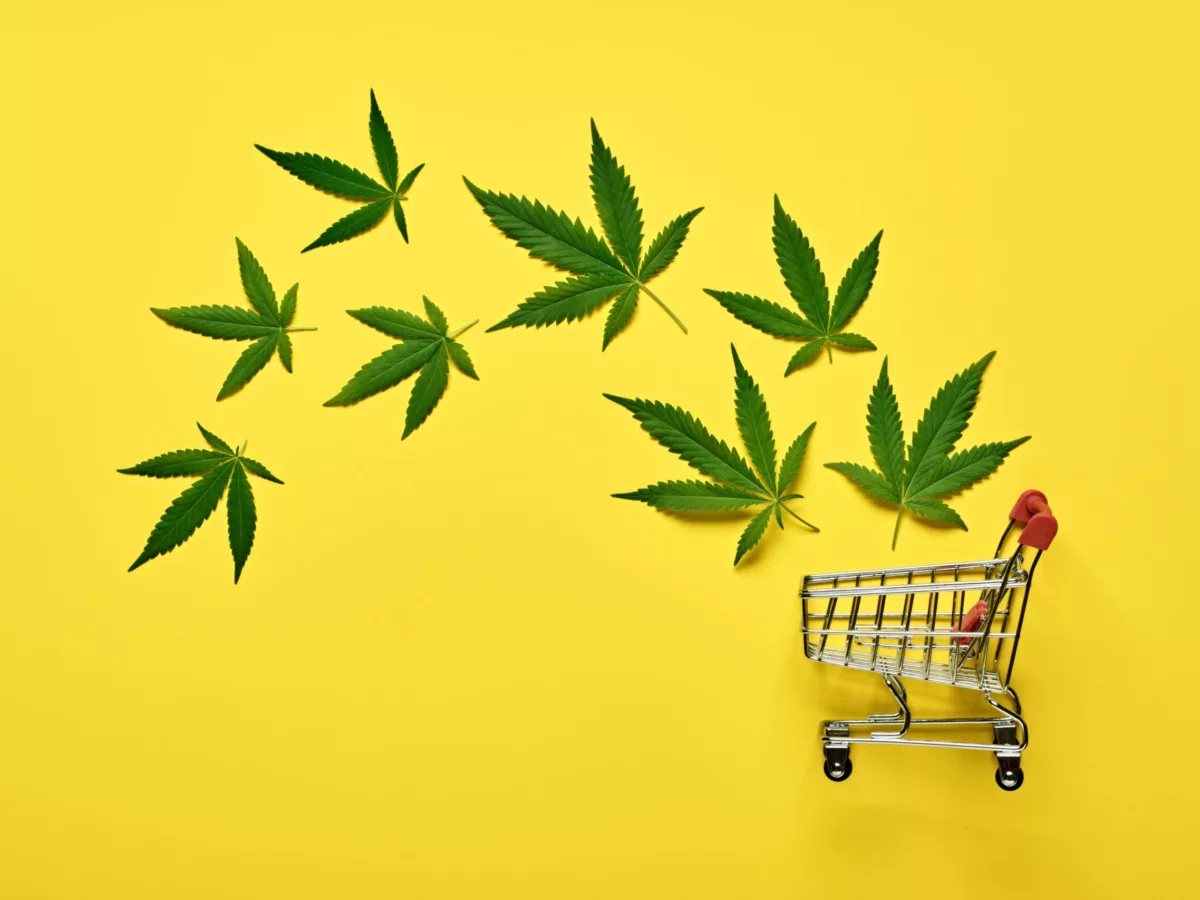For this year’s 4/20 celebration, the American Civil Liberties Union released a sobering report. Titled “A Tale of Two Countries: Racially Targeted Arrests in the Era of Marijuana Reform,” the in-depth report illustrates how black people are 3.6 times more likely than white people to be arrested for cannabis possession. This is similar, the ACLU noted, to where those disproportionate numbers were seven years ago when the ACLU released its last expansive cannabis report, 2013’s “The War on Marjuana in Black and White.”
Below are some of the important national and local takeaways from the report.
43 percent of all drug arrests in the United States since 2010 have been for cannabis. Nine out of ten of those arrests have been for cannabis possession. As one would expect, arrests decrease in states with decriminalization and legalization, with states with legalization being the lowest (decriminalized states still have eight times more arrests for cannabis as legalized states)
The ACLU also declares, “Legalization is not enough,” adjusting the common argument back in the early years of cannabis reform in this country where many explained, “decriminalization is not enough.”
“States must legalize marijuana, and do so as a matter of racial justice,” the report reads. “This means not only legalizing marijuana with the specific goal of undoing some of the harms of decades of racist criminal legal policies, but pursuing broader reforms in the criminal legal system to ensure that the harms of the war on marijuana do not simply re-materialize in other ways after legalization.”
The report also rather hopefully says that, “law enforcement must take crucial steps toward ending racial profiling and harassment of Black communities,” and adds, “prosecutors should refuse to move forward with marijuana arrests generally, and with any arrests that are targeted disproportionately at communities of color.” Despite the report’s vast amount of data, the ACLU notes that data collection regarding cannabis arrests is limited. For example, FBI data does not have a racial category for Latinx people and instead categorizes Latinx people as black or white.
“Data on white arrests thus might include many Latinx individuals, which would inflate the white arrest rate and mean that the actual racial disparities between arrests of white people and people of color is even higher,” the ACLU said.
“A Tale of Two Countries: Racially Targeted Arrests in the Era of Marijuana Reform” also breaks down arrest information as it pertains to race by state and then within each state, by county/city.
In Maryland, a black person is 2.1 times more likely to be arrested for cannabis possession than a white person, which is lower than the national average. Maryland ranks 44 out of 50 for racial disparities. 50% of the drug arrests in Maryland are for cannabis. 17 of Maryland’s 24 counties have a racial disparity rate higher than the national average of 3.6.
One notable detail is that the ACLU’s report says in Baltimore City, which has been the focus of cannabis arrest reform by the Baltimore City State’s Attorney’s Office (96% of the people in Baltimore arrested for cannabis between 2014-2017 were black), a black person is 0.9 times more likely to be arrested for cannabis possession than a white person. It is the lowest percentage in the state.
The ACLU’s map shows a significant decrease in cannabis arrests in Maryland since 2014 when cannabis was decriminalized. Arrests however, began to slightly increase in 2015 and have increased more in 2017.
Despite Maryland’s decriminalization of cannabis, three counties in Maryland made the “Top 20 Counties for Marijuana Possession Arrest Rates per 100k people” list: Worcester County, Dorchester County, and Calvert County.
In Virginia, a black person is 3.4 times more likely to be arrested for cannabis possession than a white person, which is just under the national average. The ACLU’s map shows a significant jump in cannabis arrests in Virginia since 2016. Virginia ranks 27 out of 50 for racial disparities. 52% of the drug arrests in Virginia were for cannabis. 51 of Virginia’s 95 counties have a racial disparity rate higher than the national average of 3.6. Two counties in Virginia made the “Top 20 Counties for Marijuana Possession Arrest Rates per 100k people” list: Prince George County and Culpeper County.
Washington D.C. is not included in the report because the ACLU explained, the district has refused to provide ACLU with data (Florida also refused to give the ACLU data).






